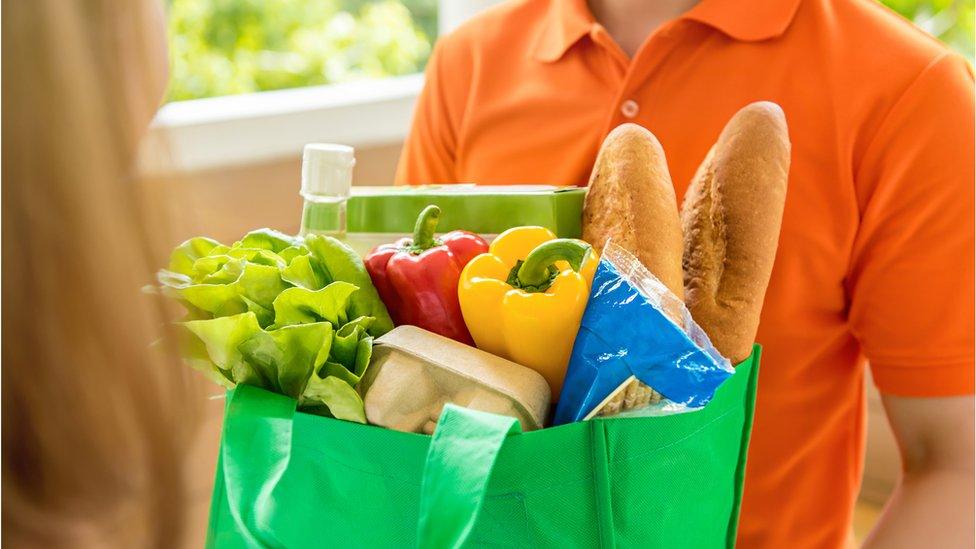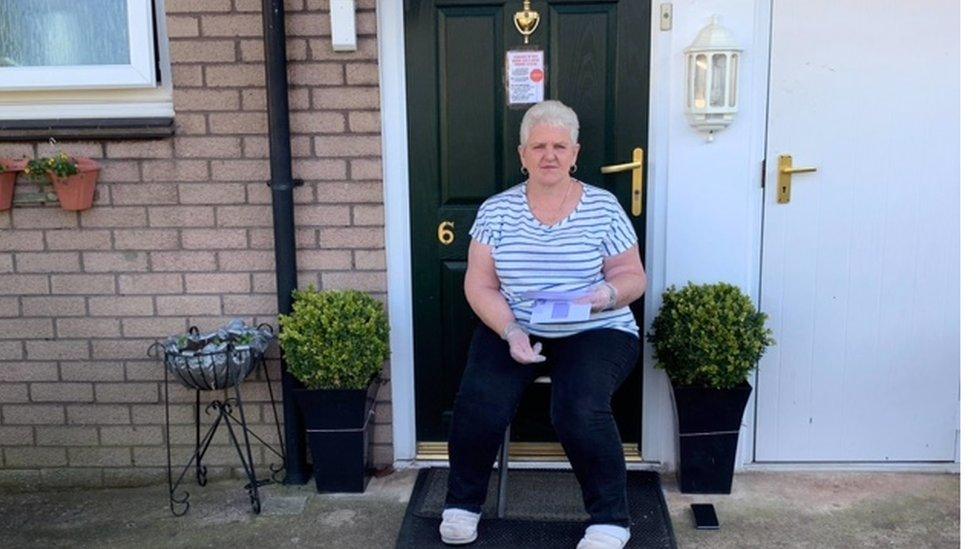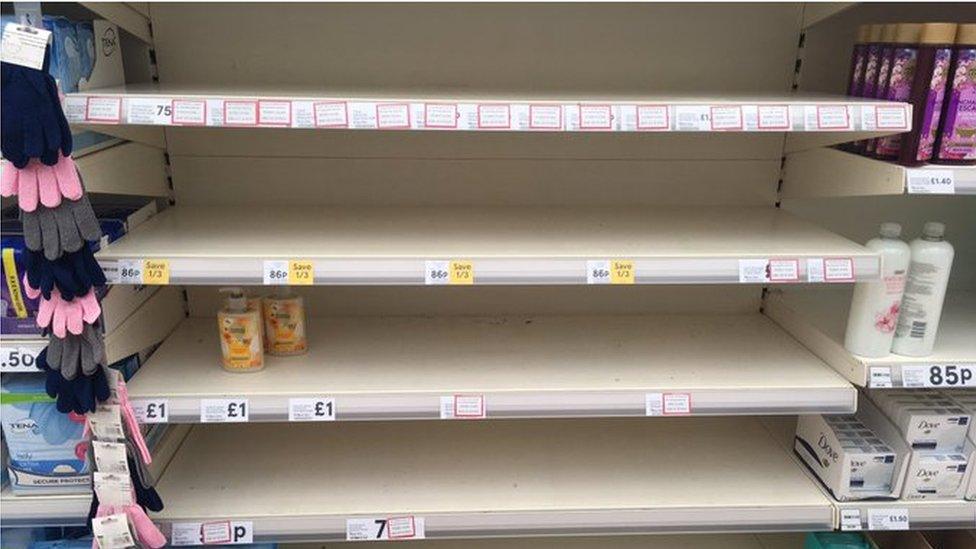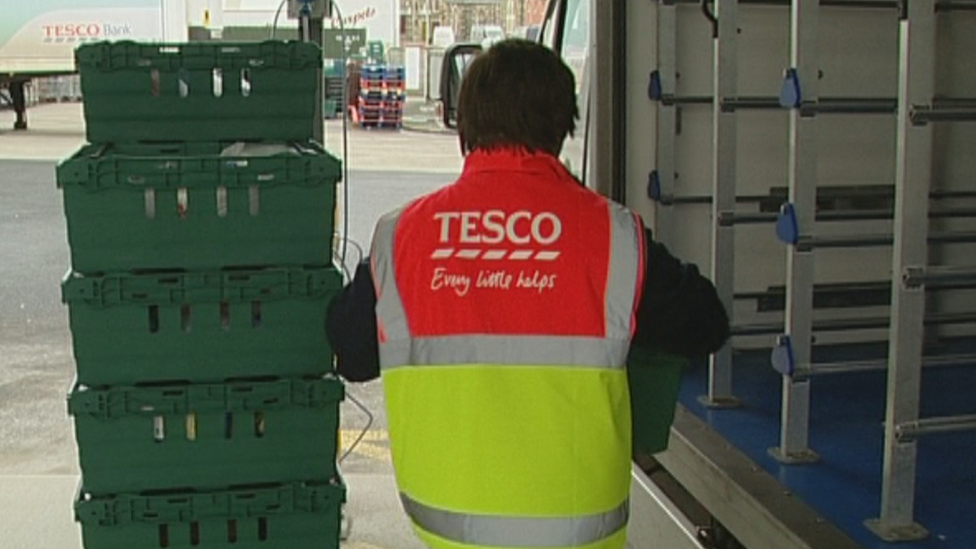Coronavirus: Supermarkets sent list of Welsh people 'shielding'
- Published

Lesley Griffiths said she expected those taking shielding measures to start being given slots this week
Supermarkets have now been given names of highly vulnerable people to help prioritise food deliveries, the Welsh Government has said.
Some high-risk customers told not to leave the house have said they are unable to get online delivery slots.
Environment Minister Lesley Griffiths said major shops should now have details of "shielding" customers.
In England, supermarkets have had access to a UK government database of 1.5m at-risk shoppers for some time.
Over 80,000 people in Wales have been told to self-isolate for at least 12 weeks due to being at a high risk from the virus, including some older people and those with underlying medical conditions.
Ms Griffiths said all of the eight major supermarkets would have access to data by Wednesday night to prioritise deliveries for those who had been told to stay at home, and she expected them to start scheduling them this week.
"About 85,000 letters have gone out; those are the shielded group, and so, for those people, those priority online slots will be made available," she said.
Ms Griffiths said the scheme was not for those classed as "vulnerable" to the virus, as the supermarkets would not be able to cope, and defended how long it had taken to share the data, saying it was important "proper safeguards were in place".

'Nobody delivers'

Caroline Walsh has been struggling to get food delivered in Pontypool
Caroline and Michael Walsh had been relying on their son to get food to their home in Sebastopol near Pontypool.
But since he became ill and had to self-isolate they have struggled to get basic supplies while they are stuck in their home.
The couple, who have serious underlying medical conditions, were both sent "shielding" letters and are unable to go out.
"I've been phoning up local farms, trying to get them to deliver me sacks of potatoes or trays of eggs, a bag of this and some vegetables, but nobody delivers them," said Ms Walsh.
"It's left me feeling deflated," she said.

Earlier Housing Minister Julie James urged friends, relatives and neighbours to continue shopping for people who needed help to stop the system being overwhelmed.
Ms James said while the system was "robust" it was "very unlikely to be able to ensure that all 88,000 people in Wales would be able to get a priority slot".
"So what we've got, we hope, is a set of fail-safes and steps that people can take to make sure that nobody in Wales goes without what they need," she added.
- Published20 March 2020

- Published1 April 2020

- Published8 January 2021
